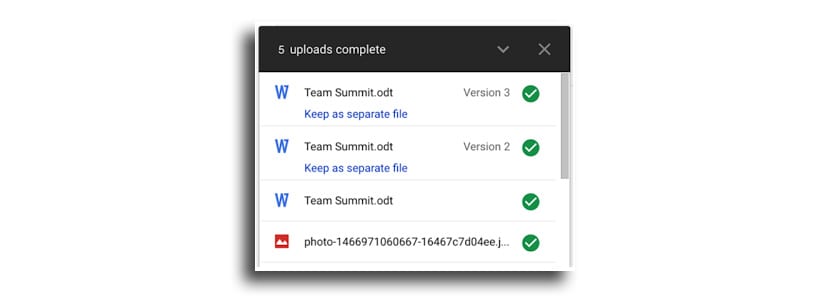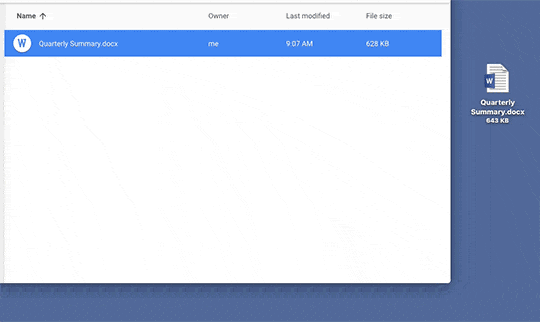
Google Drive has made a small but significant change which improves the way you handle duplicate files. When the same file is downloaded and then uploaded, rather than renaming it to reflect that it is a duplicate, Drive will list it as recently uploaded as "version x", which makes it easier to see which file you have. last edited or found an older version than you need.
The idea is that many users upload their files to Google Drive, then download them at some point to make changes, and finally upload revised file to the cloud again. When that file is loaded again, it will be more difficult to find what one is looking for based on the naming structure, or impossible to find due to continual changes if the new one replaces the old one.
Google has taken its own blog to explain that once this functionality is active for everyone, the moment any file is loaded with the same name it will be duplicated, and the old version will be found in revision history. If you upload folders with the same name as existing folders, they will be merged together for better management.
If for whatever reason one does not want this deduplication to occur, it can be stopped by clicking on "Keep file separate" after charging is complete. This will keep them as separate duplicates rather than different versions of the same file.
As said at the beginning, a small but very significant change that will improve the management of those duplicate files that usually populate the storage we have in the cloud, and that are one of those updates that Google like this one releases from time to time.
